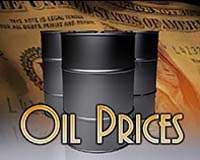 |
Cairo (UPI) Mar 17, 2011 U.S. sanctions on Libya's natural gas exports to Europe, the shutdown of Egyptian gas supplies to Israel and Jordan, and the prospect of trouble in Algeria, another major gas exporter, spells turmoil in the energy market in the weeks -- and possibly years -- ahead. The flow of Egyptian gas to Israel was cut off Feb. 5 after a terminal in the northern Sinai Peninsula was bombed amid the political turmoil that toppled President Hosni Mubarak six days later. The blast damaged the section of the terminal that pumps gas from Egypt's Nile Delta to Jordan and Syria. The section that handles Israel-bound gas wasn't affected but it was shut down along with rest of the facility. That cut off some 40 percent of Israel's gas supplies, which it uses to power electricity generation. Smaller quantities of Egyptian gas go to Lebanon and Syria. It wasn't clear whether the decision to cut off supplies to Israel was directly linked to the political upheaval in Egypt. But the Mubarak regime's decision to sell highly subsidized gas to the Jewish state under a $2.5 billion, 20-year deal in 2005, as part of the historic 1979 peace treaty between the two longtime foes, was widely unpopular with Egypt's 80 million people. They have long opposed the peace pact, which has become a key element in both countries' strategic outlook, and still view Israel as an enemy. At the time, Egyptian authorities said the pipeline system needed to "cool off" and that supplies would be resumed within a week or so. But there were repeated delays, which cost Israel an estimated $67 million, and the flow wasn't resumed until Wednesday. In the meantime, in what Israelis see as a portent of how their relations with Egypt are changing now that Mubarak has gone, Cairo reportedly says it wants to boost the price of the gas that goes to Israel and Jordan. Israel-based analyst Victor Kotsev said: "There is some sound logic in this request For the past five years Egypt has been selling gas to its northern neighbor at highly subsidized rates despite facing a shortage of gas at home." Since the 1979 peace treaty is so central to Israel's strategic outlook, the military council now running Egypt may seek to use the agreement as a lever to make Israel pay more. In 2008, a Cairo court ordered the Mubarak government to stop the gas exports because they'd never been approved by Parliament. Mubarak ignored the order to avoid endangering the peace pact. But, Kotsev observed, "it seems that the current government will use the ruling as an excuse to renegotiate the treaty." Jordan buys more gas than Israel but at an even lower price. The Egyptian gas produces 80 percent of the Hashemite kingdom's electricity but Amman pays $3 per million British thermal units, compared to Israel's $4.50. The five-week cutoff cost resource-poor Jordan around $2.2 million a day. Israel and Jordan may have little choice but to pay Cairo what it's demanding. Israel has discovered large offshore gas fields in the eastern Mediterranean containing 25 trillion cubic feet of gas, enough to meet its domestic needs for a generation or more. But the earliest these can start producing, and changing the strategic calculus, is around 2014 and even then in limited volume. In the absence of Egyptian gas, Israel would have to use fossil fuels. So would Jordan. But these cost 10 times as much as the Egyptian gas. "Those in charge of Israel's energy economy must prepare now for the possibility of more prolonged interruptions, whether due to problems operating the pipeline or a reversal in Egypt's commitment to supplying natural gas to Israel," the Israeli daily Haaretz cautioned. Europe is contending with reduced gas flows from North Africa because Libya's energy industry has shut down. At present these amount to 2.5 percent but that could worsen. Most of Libya's natural gas exports, 353 billion cubic feet a year, are pumped through the $6.6 billion Greenstream undersea pipeline to Italy. However, but that's been closed since Feb. 22. Trouble is also brewing in Algeria, the biggest pipeline gas exporter in the Middle East which supplies 13 percent of Europe's needs. With exports of 1.25 trillion cubic feet it's the fifth biggest in the world.
Share This Article With Planet Earth
Related Links Powering The World in the 21st Century at Energy-Daily.com
 Mideast crisis sends oil up in Asian trade
Mideast crisis sends oil up in Asian tradeSingapore (AFP) March 17, 2011 World oil prices rose in Asian trade on Thursday afternoon as dealers turned their attention to unrest in the Middle East from the Japanese nuclear crisis, analysts said. New York's main contract, light sweet crude for delivery in April, gained 43 cents to $98.41 per barrel while Brent North Sea crude for May was up 20 cents to $110.80. Crude prices reversed earlier losses as Middle East ... read more |
|
| The content herein, unless otherwise known to be public domain, are Copyright 1995-2010 - SpaceDaily. AFP and UPI Wire Stories are copyright Agence France-Presse and United Press International. ESA Portal Reports are copyright European Space Agency. All NASA sourced material is public domain. Additional copyrights may apply in whole or part to other bona fide parties. Advertising does not imply endorsement,agreement or approval of any opinions, statements or information provided by SpaceDaily on any Web page published or hosted by SpaceDaily. Privacy Statement |